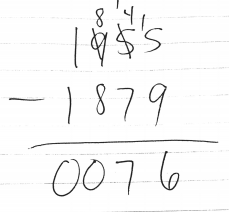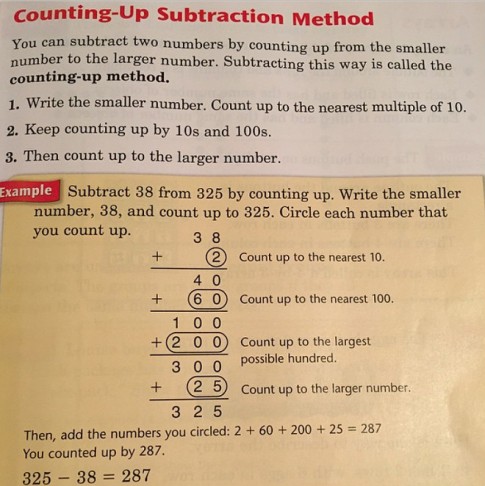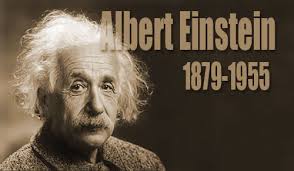Here is the latest (for me) bashing of the common core standards:
http://toprightnews.com/?p=6326
Again, the subject of the bashing is subtraction…I find it interesting that subtraction seems to be taking the biggest hit when it comes to common core bashing!
The blogger says, “Here is the insane “method” they came up with to utterly confuse 4th graders about subtraction:”
Insane? Utterly confuse? I think not!
Consider this: Albert Einstein was born in 1879 and died in 1955. How old was he when he died? Think about it…then pay attention to how you thought about it…
Many adults think about this situation like this:
- Starting with 1879, it takes 21 years to get to 1900.
- Then, another 55 years takes us to 1955.
- So, Einstein was 21 + 55 = 76 years old (or would have turned 76) in 1955.
This is the “counting up method” described in the textbook! This method seems SANE and UTTERLY sensible to me!
As I have explained in other posts (Part I, Part II, Part III, Part IV, Part V, Part VI), the main issue is how one thinks about subtraction. If one only thinks about subtraction as “take away” then their understanding is incomplete. We can also think about subtraction as a comparison…which is really what is happening here. We are comparing 1955 to 1879 to see how many years have elapsed. Furthermore, think about the method (yes, it is a method!) described early…first add 21 years…then add 55 years…and compare that method to the standard subtraction algorithm from a “take away” perspective.
 With the double borrowing, mistakes can be made. In addition, I am a fan of mental math…it can absolutely be a helpful and healthy thing to keep track of quantities mentally!
With the double borrowing, mistakes can be made. In addition, I am a fan of mental math…it can absolutely be a helpful and healthy thing to keep track of quantities mentally!
The goal…and who can really argue this…is for students to become fluent, flexible, and efficient with computations.
- Fluent in a way similar to becoming fluent in a foreign language…comfort, ease, speed, and confidence are all hallmarks of fluency.
- Flexible in the sense that a student will use an algorithm if necessary, use a counting up strategy if possible, or other strategies learned in school.
- Efficient in the sense that a student will choose a strategy that is appropriate for the task at hand. For example, in the Einstein example, I argue that the counting up strategy is more efficient than the traditional algorithm…at least for those who have been trained to think that way!
Scott

